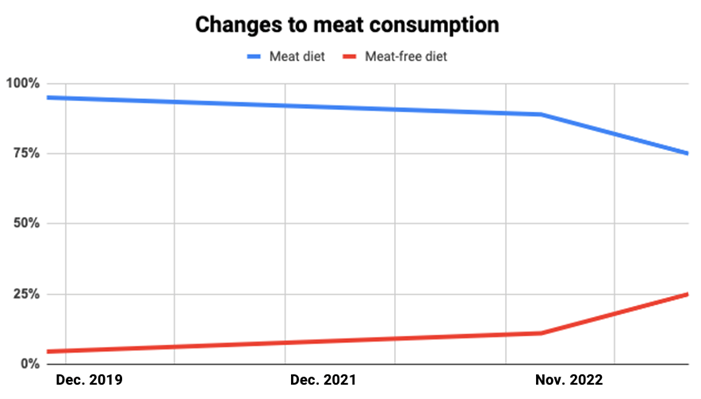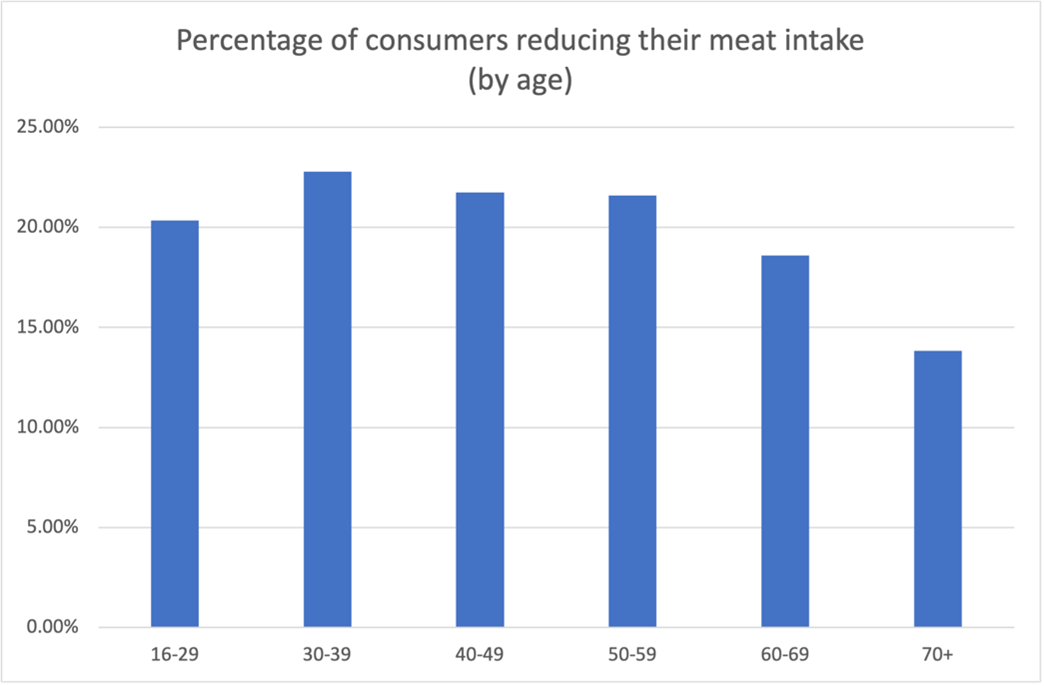As of June 2022, 10% of 20-29-year-old UK citizens were already on a meat-free diet and, over the last decade, the UK as a whole has decreased its meat consumption by 17%.
However, while meat consumption was already in decline, the inflation rate for food and non-alcoholic beverages rose for its 16th consecutive month in December, accelerating this decline and causing more consumers to consider going meat-free as a realistic lifestyle change.
As a result, supermarkets are having to react to the current market and adapt to the cost-of-living crisis accordingly.
New research from retail innovator NTT DATA UK&I has discovered that shoppers’ habits are shifting due to the cost-of-living crisis and, as a result, more consumers are turning away from meat in a bid to reduce expenditure.
One in five UK consumers said they are switching their eating habits in order to accommodate rising meat prices, while 45% are switching premium supermarkets such as Waitrose and M&S, for more affordable grocers.
In fact, 1 in 9 people are skipping meals altogether in a bid to cut costs too. These changes put retailers in a tough position when it comes to ensuring they have the right amount of stock and that suppliers can meet changes in demand.

The research found that meat-free diets will become increasingly popular as younger generations become the primary supermarket shoppers.
Those aged 16-29 and 30-39 are most likely to reduce meat consumption, with 20% and 23% having already done so as a result of the cost-of-living. In contrast, only 15% of older generations are reducing meat consumption due to ongoing price increases in meat products and stresses on their finances.

While all areas of the UK are being impacted by the cost-of-living, it appears as though Londoners remain the least affected by food inflation, with 18% reducing their meat consumption in recent months, lower than all other regions.
This correlates with insight into changing habits as broken down by income. The findings show that those on lower income brackets are more likely to reduce their meat consumption with 25% of those earning less than £12,570 leaving out meat, compared to just 17% of people doing the same on incomes over £50,000.
Geoff Lloyd, director of retail at NTT DATA, said: “Grocers are in a challenging position, trying to find the agility to transform in an ever-evolving marketplace.
“Digital innovation has a huge role to play in aiding grocers through this period, from both a back-end and front-end point of view. Now is the time for grocers to be streamlining operations while implementing innovative front-end technologies to improve the customer experience.
“Finding new ways to market products and utilise technology resources will also help retailers gain a comprehensive understanding of changing industry and consumer trends. For most retailers, this will only be achieved by providing a personalised, flexible customer experience facilitated by top-notch tech and data analytics. Those with the best tech will come out on top.”
 Talking Retail Grocery and product news for independent retailers
Talking Retail Grocery and product news for independent retailers






